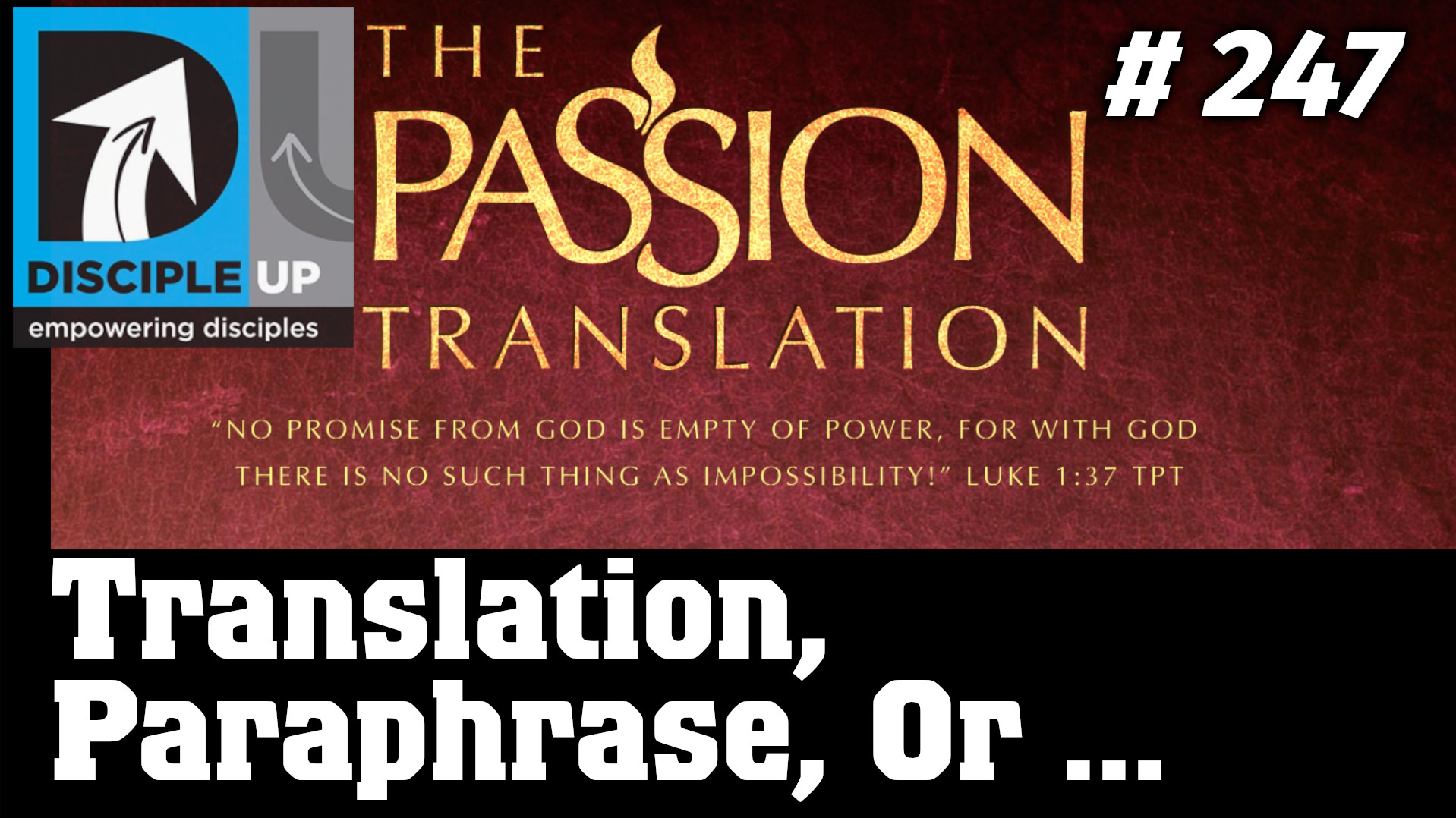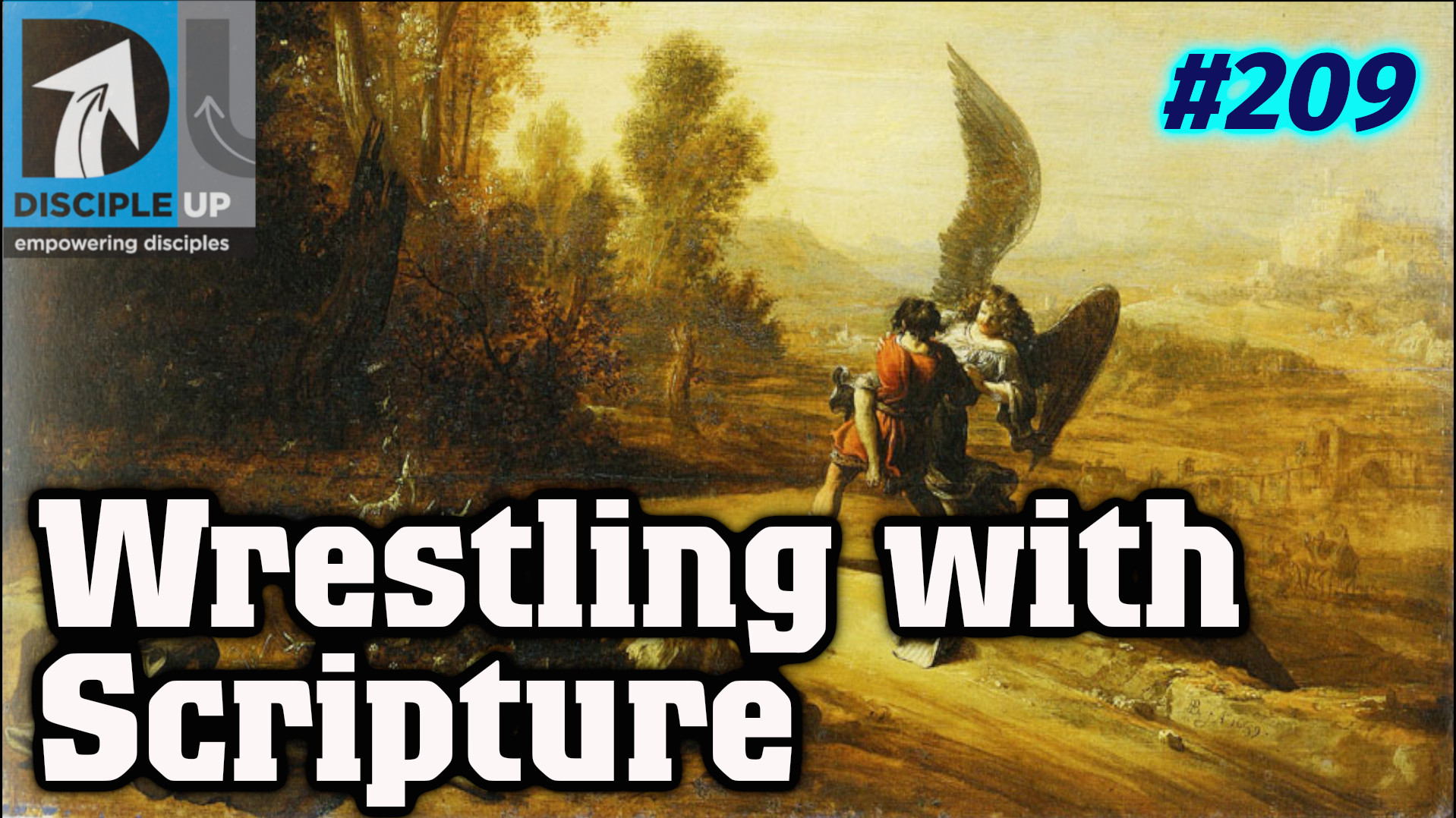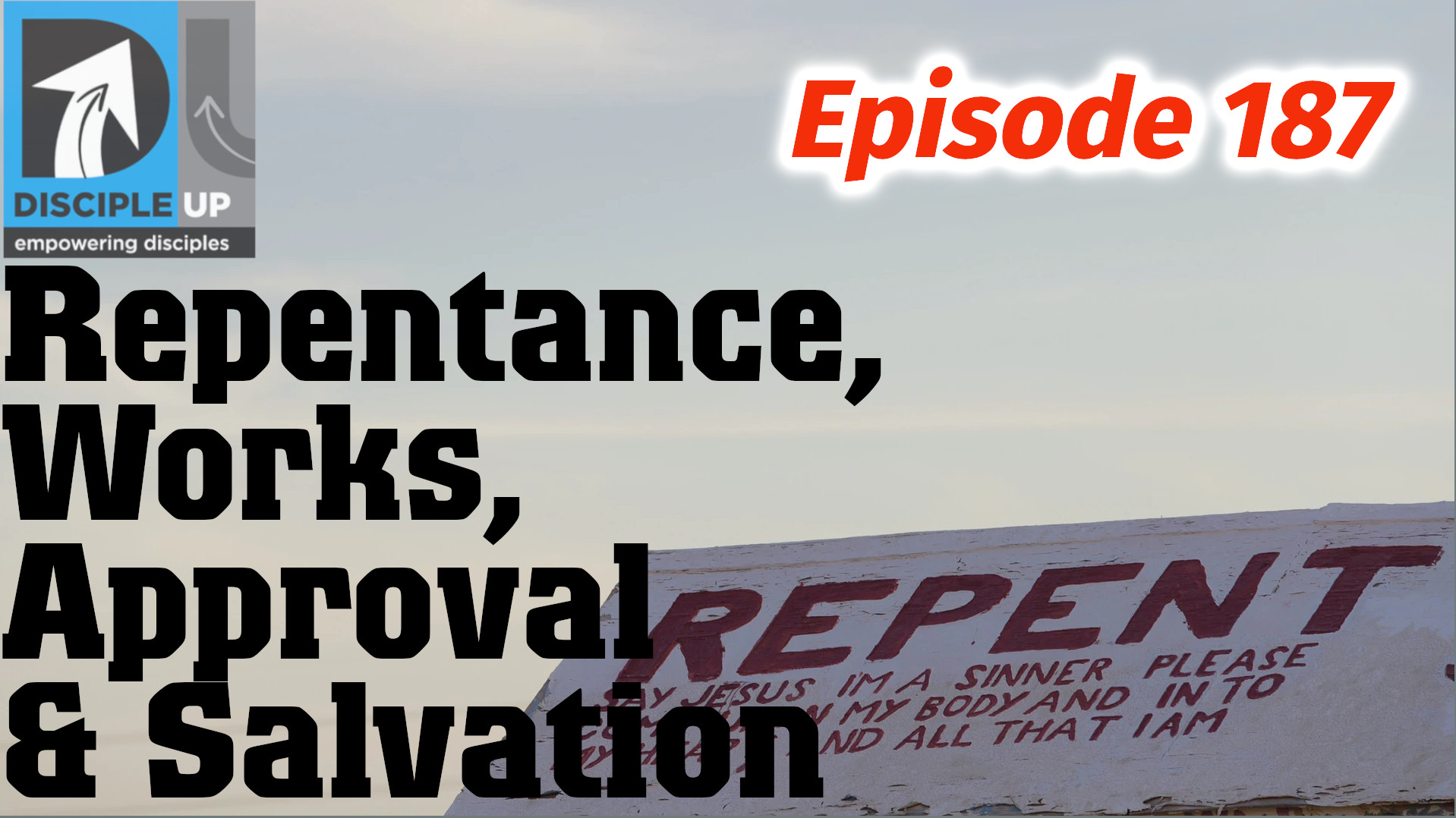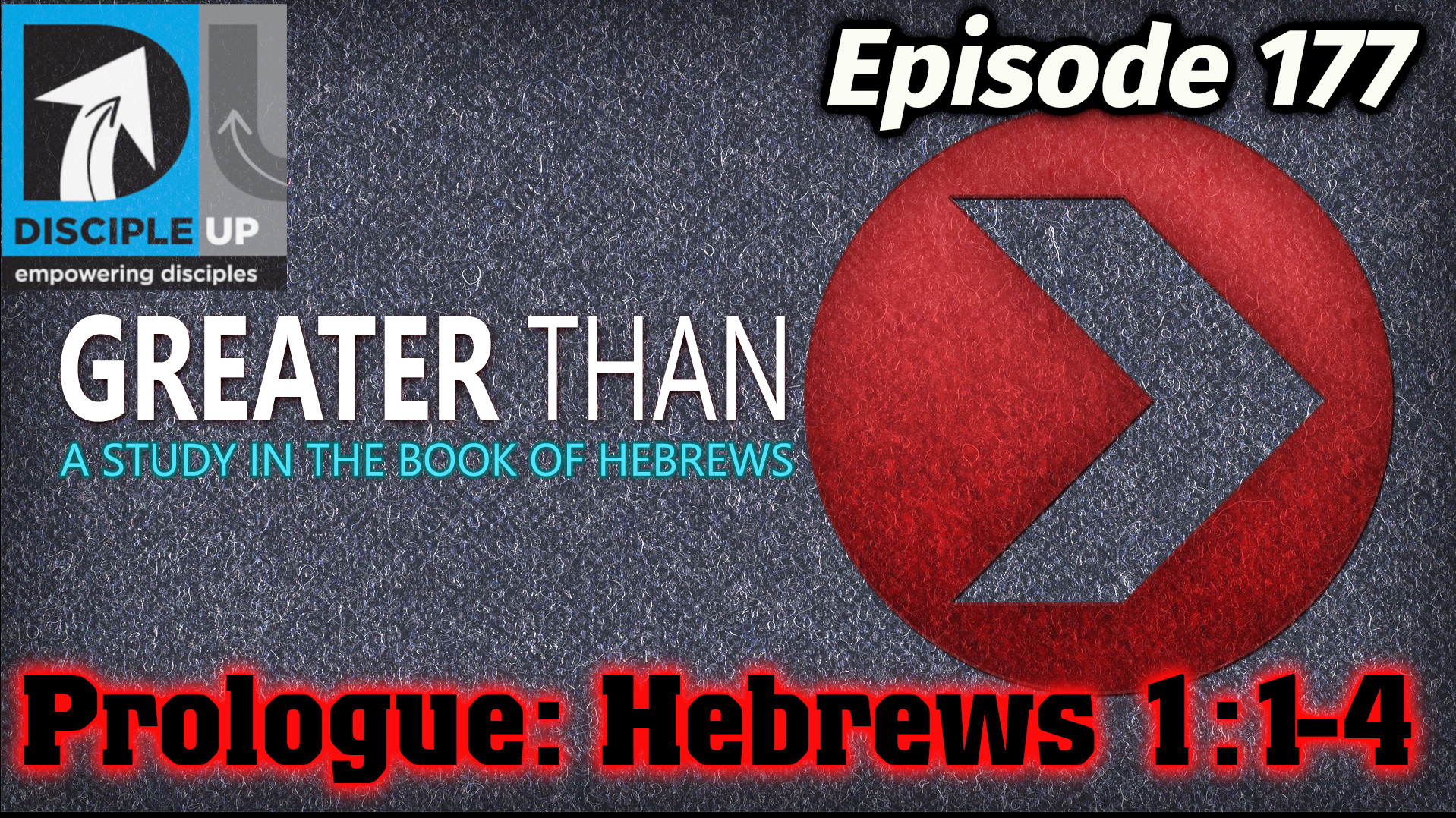Disciple Up # 247
The Passion Translation – Translation, paraphrase or…?
By Louie Marsh
Intro.
I’m not a Bible translator, or a Greek or Hebrew scholar, but I am a Bible teacher with nearly 50 years of experience and when things like this appear they need to be spoken on. My goal isn’t to attack anyone and that includes the people involved with the Passion Translation.
Links to websites used in this episode:
- https://www.thepassiontranslation.com/
- https://www.christianitytoday.com/news/2022/february/passion-translation-tpt-bible-gateway-remove-charismatic-pa.html
- https://thinktheology.co.uk/blog/article/whats_wrong_with_the_passion_translation
- http://www.larryoverton.com/a-critique-of-the-passion-translation/
- https://www.thepassiontranslation.com/translation-philosophy/
Examples of Too Many Words AND Continual Improvements
PHILIPPIANS 1:1-2:
“1Paul and Timothy, servants of Christ Jesus, To all the saints in Christ Jesus who are at Philippi, with the overseers and deacons: 2Grace to you and peace from God our Father and the Lord Jesus Christ.” (Philippians 1:1–2, ESV)
TPT (2016) “My name is Paul and I’m joined by my spiritual son Timothy, both of us passionate servants of Jesus, the Anointed One. We decree over your lives the blessings of divine grace and supernatural peace.”
TPT (2022) 1From Paul and Timothy, both of us servants of Jesus, the Anointed One. To all his devoted followers in Philippi, including your pastors, and to all the servant-leaders of the church. 2May the blessings of divine grace and supernatural peace that flow from God our wonderful Father, and our Messiah, the Lord Jesus, be upon your lives.
GALATIANS 2:19:
“19For through the law I died to the law, so that I might live to God.” (Galatians 2:19, ESV)
TPT (22016) “so that I can live for God in heaven’s freedom”
TPT (2022) 19 For through the law I died to the law, so that I might live to God.
Examples of Adding Words & Phrases to the Text:
THE LORD’S PRAYER IN LUKE:
ESV Translation: “1Now Jesus was praying in a certain place, and when he finished, one of his disciples said to him, “Lord, teach us to pray, as John taught his disciples.” 2And he said to them, “When you pray, say: “Father, hallowed be your name. Your kingdom come. 3Give us each day our daily bread, 4and forgive us our sins, for we ourselves forgive everyone who is indebted to us. And lead us not into temptation.”” (Luke 11:1–4, ESV)
TPT (2022) 1One day, as Jesus was in prayer, one of his disciples came over to him as he finished and said, “Would you teach us a model prayer that we can pray, just as John did for his disciples?”
2So Jesus taught them this prayer: “Our heavenly Father, may the glory of your name be the center on which our life turns. May your Holy Spirit come upon us and cleanse us. Manifest your kingdom on earth. 3And give us our needed bread for the coming day. 4Forgive our sins as we ourselves release forgiveness to those who have wronged us. And rescue us every time we face tribulations.”
TBT (2022) Lord’s Prayer In Matthew: 9Pray like this: ‘Our Beloved Father, dwelling in the heavenly realms, may the glory of your name be the center on which our lives turn. 10Manifest your kingdom realm, and cause your every purpose to be fulfilled on earth, just as it is in heaven. 11We acknowledge you as our Provider of all we need each day. 12Forgive us the wrongs we have done as we ourselves release forgiveness to those who have wronged us. 13Rescue us every time we face tribulation and set us free from evil. For you are the King who rules with power and glory forever. Amen.’
The Deeper Issue with this “translation”
It focuses the reader upon themselves rather than on God. The first part of the Lord’s prayer is all about focusing on God. This model prayer of Jesus teaches us to focus on God first – not ourselves. Yet the Passion Translation turns our attention immediately to ourselves with the Holy Spirit line.
So not only is there NOTHING about the Holy Spirit in the text – his choice to add to the Lord’s prayer derails what Jesus is trying to do with it! So we end up doing the exact opposite of what Jesus is leading us to do!
All translations struggle with being produced in a particular time and place. Your culture does impact how you translate things. The job of a good translator – and good Bible Teachers as well for that matter – is to minimize the impact.
Here we see the Passion Translation being as modern as you can get. It seems determined to get me and myself and my problems and my ego into view as often as possible. Even when the sinless and perfect Son of God make sure to exclude those!
Jesus is trying to get us to see that one of the first things prayer should do is to pull us out of ourselves and remind us how glorious, holy, perfect and pure God really is. Then, once I’ve got my eyes focused on Jesus again, once I can begin to see things from God’s perspective, then and only then do I bring my needs to my Father.
This translation destroys that and it does it by adding to the text while changing the focus of the passage. It actually perverts Jesus intention in saying this.
The Bottom Line:
1) It’s a paraphrase, not a translation, and that’s what it should be called.
2) The misuse of the Syriac Aramaic translation must be abandoned and corrected.
3) The practice of inserting entire phrases and sentences into the text must cease and be corrected.
If these things are not done then this so-called translation which is really a paraphrase, should be avoided by all who seriously seek to honor, understand and practice God’s Word.
Please Get In Touch!
Email – louie@discipleup.org

Check out the Disciple Up Facebook page:
My books –














